MercoPress. South Atlantic News Agency
Economy
-
Tuesday, September 18th 2012 - 06:53 UTC
IMF delays report on Argentina’ controversial economic data reporting

The International Monetary Fund (IMF) decided it will not “release any communiqué regarding Christine Lagarde report over Argentina's statistics,” the press department announced. It is expected that the report with the analysis of the Board of Directors will be released on Tuesday.
-
Tuesday, September 18th 2012 - 06:41 UTC
Soy, corn and wheat futures with record drops in Chicago on improved yields of US crop

US soybean futures tumbled on Monday trading posting their biggest percentage drop in nearly one year, on selling sparked by anecdotal accounts of better-than-expected yields in the Midwest farm belt.
-
Monday, September 17th 2012 - 17:29 UTC
Cruise convention underlines South America’s potential for the industry

South America was described as a ‘fantastic destination’ for the cruise industry but with an even greater potential said Chris Hayman at the closing ceremony of the two-day Seatrade South America Cruise Convention in Buenos Aires.
-
Monday, September 17th 2012 - 14:57 UTC
FOGL and Edison strike gas discovery to the East of the Falkland Islands
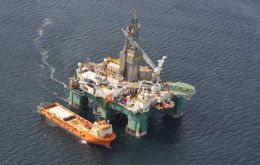
Falkland Oil and Gas Ltd announced Monday that the well drilled to the East of the Falkland Islands to a depth of over 4.000 meters is a gas discovery. The statement comes after a rough week for FOGL when its shares plummeted following poor and unfounded press coverage.
-
Monday, September 17th 2012 - 05:37 UTC
Venezuela and Argentina sign 24 agreements in the oil-food industries

Venezuela and Argentina signed three institutional agreements and 24 among corporations during the two-day First Meeting for the Venezuela-Argentina Petro-industrial development with the purpose of intensifying trade, investment and cooperation between the two countries.
-
Monday, September 17th 2012 - 02:47 UTC
Experts close to President Rousseff warn of a “real estate bubble” in Brazil
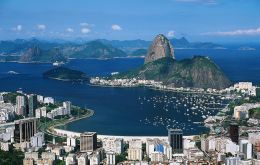
A team of experts working for the administration of President Dilma Rousseff has warned of the existence of a “real estate burble” in Brazil with the value of houses soaring 165% in Rio do Janeiro and 132% in Sao Paulo in the last four years.
-
Saturday, September 15th 2012 - 06:54 UTC
Growing number of Spanish companies looking to make business in Latin America
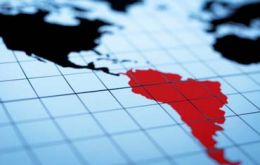
An ever growing number of Spanish companies are setting their eyes on Latin America, a region with an expanding economy, abundant natural resources and much to be done as reported by Spain’s trade offices and Spanish chambers of commerce.
-
Saturday, September 15th 2012 - 05:42 UTC
Obama says his administration has been ‘very aggressive’ in expanding relations with Latin America

US President Barack Obama denied on Thursday contrary to what many of his critics contend that he has neglected Latin America and said that his administration has been “very aggressive” in trying to broaden relations with the region.
-
Saturday, September 15th 2012 - 05:36 UTC
Argentina pledges to increase corn exports to help ease tight global markets
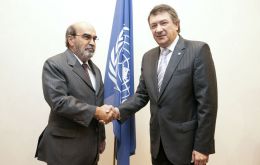
Argentina pledges to export an extra 2.75 million tons of corn from its 2011-12 harvest to a total of 16.45 million tons helping to ease tight international markets after this summer's drought in the US damaged crops there and fuelled fears of a food crisis.
-
Saturday, September 15th 2012 - 05:29 UTC
YPF/Chevron signed an understanding to explore for shale gas and oil in Neuquen
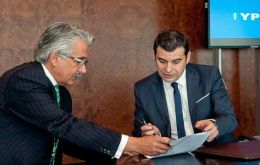
Argentina's recently nationalized oil and gas producer YPF SA and the US Chevron Corporation have signed a memorandum of understanding to explore for unconventional energy in Vaca Muerta, in the Patagonian province of Neuquen.
